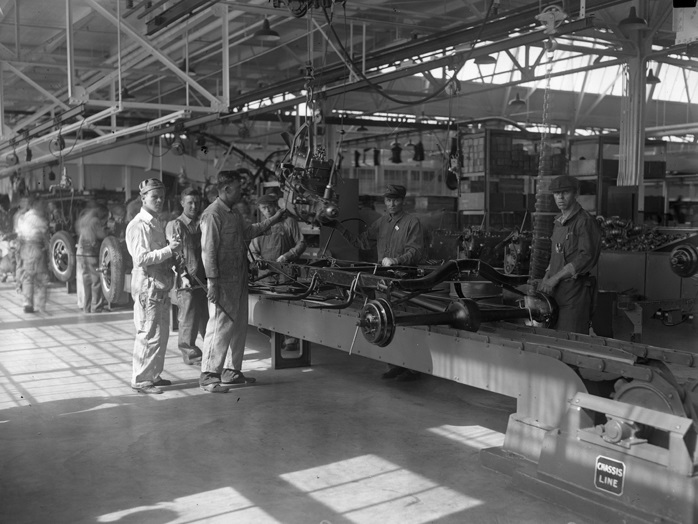
Monday to Friday, 9 to 5? Maybe it doesn’t have to be like this
A political party in the UK, the Green Party, recently proposed that we re-jig the working week to give everyone a three-day weekend, every week.
Imagine! A precious extra day off for getting out and about, assembling flat-pack furniture or just sitting on the couch doing nothing – every week.
We’ve been in the rut of the five-day working week for so long that an extra day’s break from the grind is a rare and treasured thing. But, with studies showing that working shorter hours can actually improve performance, as well as working wonders for wellbeing, maybe the idea’s not so far fetched after all.

It's been done before
The state of Utah experimented with a four-day week, and in Gambia the former president introduced a longer weekend for government workers. In Sweden, a two-year trial of six-hour working days for some nurses showed that employees felt healthier, showed up more often, and performed better. The downside was having to employ more nurses, which officials decided was just too expensive – but some individual companies have also seen positive results from offering more flexible working patterns.
For example, Jason Fried, the CEO of Basecamp, operates a 32-hour, four-day working week at his company. “Better work gets done in four days than in five, when you have less time to work, there's less time to waste. Compressing the working week means workers are more likely to focus on what's important,” he wrote in an article in the New York Times.
For employees, less time spent at work can lead to higher happiness and better health, makes it easier for parents to organise childcare and can have some pretty big environmental perks too (lights are on for less time, employees commute less, carbon emissions are lowered).
It’s not actually such a new idea after all
So if it’s such a great idea, why aren’t we already doing it? Several notable figures thought we would already be working a lot less by now. In 1930, the economist John Maynard Keynes wrote an essay envisioning an economic future in which by 2030 we would be working a 15-hour week. In 1965, a US Senate subcommittee forecast that Americans would be working a 14-hour week by the year 2000.
Their reasoning makes sense: since the start of the agricultural age humans have bust a gut all day every day, just to survive. By the time it got to the mid-20th century, people thought that improved technology and automation would mean workers could finally put their feet up.
Getting just two days off took long enough

In 19th century Britain people had just one day off a week, Sunday (or the Sabbath). But according to some reports, a lot of workers were using that one day for merriment instead of prayer – and to be fair, if you’d been working 16-hour days in punishing industrial conditions you’d probably want to let off some steam, too. But this meant people were skipping work on a Monday to recover (the historical version of ‘pulling a sickie’), so factory owners eventually compromised with workers by giving them a half-day on Saturday in exchange for guaranteed attendance at work on Monday.
In the US, the five-day work week first came about in 1908 when some factory owners gave workers both Saturday and Sunday off to take into account both Jewish and Christian Sabbaths (and this actually worked out quite well for all concerned since by then the Great Depression’ and shorter hours meant more people were needed to get jobs down, so were considered a remedy to underemployment).
Henry Ford – the guy behind the car brand – also played a key role in getting the five-day week off the ground by giving his workers a two-day weekend as standard without reducing their pay. He did this mainly because, as a savvy businessman, he understood that people with more leisure time were more likely to be in the market for a car (and not out of the goodness of his heart).

Then we got to the 1980s and something odd happened – we bucked the trend of history and started working more. Getting to the office early and leaving late were – and still are – seen as signs of commitment and dedication to the job.
Plus, a business operating four days a week compared to five is at a bit of a disadvantage if other companies aren't doing the same.
But there are ways around that. A company in Houston, for example, decided to try a four-day week and started by dividing workforce into two teams: one would work 7am-6pm from Monday to Thursday, and the other would work those hours from Tuesday to Friday. The teams would switch schedules every week, so every two-day weekend would be followed by a four-day weekend. This meant that the company was open five days a week 7am-6pm instead of 8am-5pm. Not only did morale skyrocket but employees took fewer sick days, too.
So not all companies need to make their employees work for five days, and yet the five-day work week remains the norm. Like Henry Ford and the factory owners of the industrial ages, will today’s economic decision-makers think outside the box and consider a new way of doing things?



